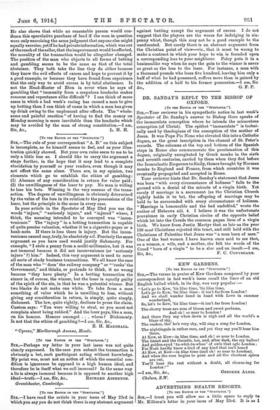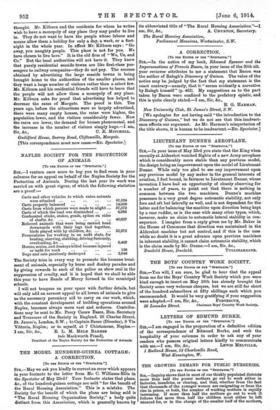thought Mr. Kilburn and the residents for whom he writes
wish to have a monopoly of any place they may prefer to live in. They do not want to have the people whose labour and means allow them a holiday for only a day, a week, or a fort- night in the whole year. In effect Mr. Kilburn says : " Go away, you naughty people. This place is not for you. We have chosen to live here." It is the old firm of "We, Us, and Co." But the local authorities will not have it. They know that purely residential seaside towns are like first classpas- sengers to railway companies—they do not pay. The success obtained by advertising the large seaside towns is being brought home to the authorities of the smaller places, and they want a large number of visitors rather than a select few. Mr. Kilburn and his residential friends will have to learn that the people will not allow them a monopoly of any place. Mr. Kilburn asks for proof that advertising has helped to decrease the rates of Margate. The proof is this. Ten years ago, before the attractions were so largely advertised, there were many empty houses, the rates were higher, the population lower, and the visitors considerably fewer. Now the rates are lower, the demand for houses phenomenal, and the increase in the number of visitors simply huge.—I am,
Sir, &c., C. E. MITCHELL. Guildford House, Surrey Road, Cliftonville, Margate. [This correspondence must now cease.—En. Spectator.]











































 Previous page
Previous page